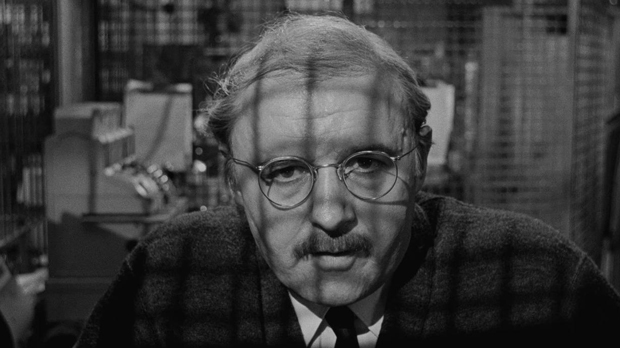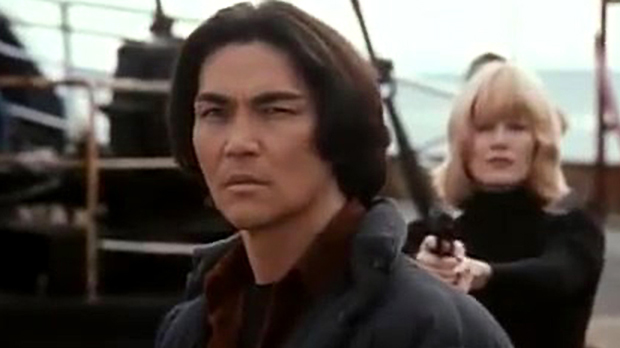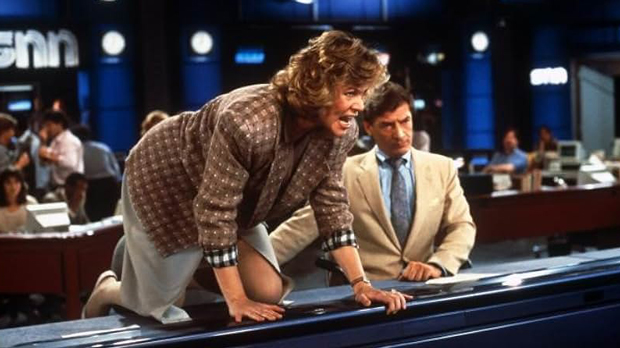 The Pawnbroker (1964) American International/Drama RT: 116 minutes No MPAA rating (nudity, sexual content, some violence, disturbing images, racial slurs) Director: Sidney Lumet Screenplay: Morton S. Fine Music: Quincy Jones Cinematography: Boris Kaufman Release date: April 20, 1965 (US) Cast: Rod Steiger, Geraldine Fitzgerald, Brock Peters, Jaime Sanchez, Thelma Oliver, Marketa Kimbrell, Baruch Lumet, Raymond St. Jacques, John McCurry, Charles Dierkop, Warren Finnerty, Eusebia Cosme, Juano Hernandez, Linda Geiser, Nancy R. Pollock. Box Office: N/A
The Pawnbroker (1964) American International/Drama RT: 116 minutes No MPAA rating (nudity, sexual content, some violence, disturbing images, racial slurs) Director: Sidney Lumet Screenplay: Morton S. Fine Music: Quincy Jones Cinematography: Boris Kaufman Release date: April 20, 1965 (US) Cast: Rod Steiger, Geraldine Fitzgerald, Brock Peters, Jaime Sanchez, Thelma Oliver, Marketa Kimbrell, Baruch Lumet, Raymond St. Jacques, John McCurry, Charles Dierkop, Warren Finnerty, Eusebia Cosme, Juano Hernandez, Linda Geiser, Nancy R. Pollock. Box Office: N/A
Rating: ****
I had no idea The Pawnbroker played such an important role in cinema history. Not only is it the first American film to deal openly with the Holocaust, it’s also responsible for striking the first major blow against the Production Code by prominently featuring nudity, a big no-no in those days. Although the MPAA claimed the film was an “exception” and would not set a new precedent, it was the beginning of the end for the Code which was ultimately abolished a few years later.
Directed by the late, great Sidney Lumet (12 Angry Men), The Pawnbroker is- or rather, was– one of those movies I’ve been meaning to watch for years. I can’t recall when or how I first heard of it; I just remember making a mental note to add it to the list of old movies to watch at some point in the future. I finally did this past weekend. WHOA! What an intense film! It shook me right to the core with its depiction of a man still haunted by the horrors he experienced during the Holocaust. He went through hell and still resides there in his mind.
Rod Steiger (In the Heat of the Night), in one of the greatest performances of all time, plays Sol Nazerman, a Holocaust survivor who runs a pawnshop in Harlem. By the time we see him driving to work, we already know he suffered a tremendous loss during the war. In a sun-washed, slo-mo prologue, we see him playing with his two children in a beautiful meadow while his wife looks on laughing. They’re obviously a happy, loving family. Suddenly, the peace is broken by some unseen thing they all look upon in shock and terror. Although it’s not revealed until later, we have a pretty good idea what they’re looking at and what happened to make him the empty shell he is now- i.e. 1964.
Sol spends the bulk of his days dealing with people he detests, viewing them as “scum” and “rejects” and giving them far less than their pawned goods are worth. Over the years, he’s conditioned himself to not show emotion and he doesn’t. He treats everybody with equal indifference, even his second wife Tessie (Kimbrell) with whom he resides in a soulless Bronx apartment. Customers one after the other try to engage Sol in conversation, hoping to garner sympathy for their plights in hopes that he pay them more than a dollar or two for their possessions, only to be rebuffed by his cold demeanor.
Sol’s shop is actually a front for local crime boss Rodriguez’s (Peters, To Kill a Mockingbird) money-laundering operation. He spends the movie pressuring Sol to sign some papers, threatening him with violent reprisal if he doesn’t. He’s idolized by his young, ambitious, Puerto Rican assistant Ortiz (Sanchez, Carlito’s Way) who wants Sol to teach him the business. True to character, he’s not especially interested in being a mentor. Social worker Marilyn Birchfield (Fitzgerald, Dark Victory) tries to form a friendship with Sol, but he pushes her away and demands she stay out of his life.
Mounting pressures from local hoods, family members and sad-sack customers prove to be too much for Sol as long-repressed memories begin to seep through cracks in the stony façade he spent years building up. When Ortiz’s prostitute girlfriend (Oliver, Black Like Me) tries to seduce him to help her boyfriend, all he can think about is how the Nazis degraded his wife in the concentration camp before killing her. That’s when his exterior really begins to crumble. He has a gradual breakdown that culminates in a violent episode.
Adapted from the Edward Lewis Wallant novel, The Pawnbroker is powerful stuff. Steiger delivers a wrenching performance as Sol, a man who chooses to shut himself off emotionally rather than deal with the tragedy shared by many Jews during WWII. He walks through life not feeling anything. When anybody tries to connect with him, he quickly shuts them down. He’s so closed off from other people, he may as well exist in an alternate dimension. His inhumanity towards his fellow man is born of his brush with the darkest side of humanity. Steiger embodies his character’s suffering perfectly as well as his inability to manage it once it comes flooding back in the form of brief, painful flashbacks to a period he never really left in the past. I can’t believe Steiger didn’t win an Oscar for this truly amazing, emotionally trying performance.
I’ve long admired Lumet as an artist. He’s one of the greatest filmmakers of the latter half of the 20th century with titles like 12 Angry Men, Serpico, Dog Day Afternoon, Network, Prince of the City, Running on Empty, Q&A and Before the Devil Knows You’re Dead (okay, it’s 2007, but still) to his credit. The Pawnbroker is one of his best. He paints a complete, incisive portrait of a tragic, tortured character for whom there are no pat solutions to his problems. They run deeper than any one event or epiphany can heal. The way he stages scenes is incredible. There’s one unforgettable scene on board a New York subway where Sol recalls his transport to the concentration camp on a crowded freight train. It is truly the stuff of nightmares.
In addition, The Pawnbroker is one of the films where everything comes together to form a perfect whole. The editing by Ralph Rosenblum (Long Day’s Journey Into Night) is at the top of the list. Through it, Sol’s tortured past is subtly wrapped in his present. The gritty, black-and-white cinematography by Boris Kaufman (12 Angry Men) beautifully captures the depressed, dangerous streetscapes of New York City while bringing them to vibrant, pulsating life. The jazzy score by Quincy Jones is an ideal fit. It mirrors the increasingly erratic emotional landscape of the protagonist.
I can’t recommend The Pawnbroker enough. It’s one of the best films dealing with the Holocaust I’ve ever seen. It doesn’t focus so much on the atrocities that occurred at the camps so much as it does the aftermath and the psychological damage inflicted on the survivors. These are scars that never go away and only worsen if left untreated. It’s a heavy but ultimately rewarding film.




